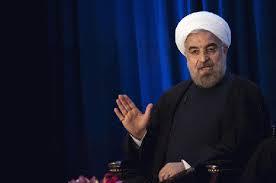Under fire from hardline critics opposed to the ongoing nuclear talks with the international community, President Rouhani hit back accusing detractors of “stealing from the people’s pockets and looting the people’s property”. This is not the first time that President Rouhani has openly linked the discussion of corruption in Iran with the claim that his opponents on the nuclear issue have been profiting from onerous Western sanctions and have a vested financial interest in their continuation.
According to an interview with prominent Iranian economist Saeed Leylaz in a February 7 article on IranPulse Al-Monitor, Iran has reached unparalleled levels of “corruption and plunder”. Hasty changes in tariff levels and import policies, according to Leylaz, “resulted in billions of dollars being exchanged,” citing the import markets for meat, fruit, and cell phones as particularly corrupt. While he admitted that sanctions have been detrimental to the economy, he stressed that better domestic management to mitigate corruption could have addressed many of the country’s problems.
One of the figures benefiting from the strict sanctions and the instability of the Iranian economy is Hassan Afrashtehpour. He and his brother Davoud are well known Iranian real estate developers with links to commodity import company Tejarat Aria Gostar Iranian Navid Co, incorporated just six days after the passing of the most recent European sanctions.
The Afrashtehpour brothers have been involved in numerous embezzlement and fraud scandals over the last 20 years, resulting heavy jail sentences for each of them. In an article published 13 May 2010 by Iranian source Jahan, it was reported that one of the Afrashtehpour brothers was involved with Akbar Khoshkush in illegally importing a large number of mobile telephones from Dubai into Iran. Khoshkush is a notorious figure in Iran, having started out as a member of the Iranian MOIS in the 1980s, he was involved in murdering several dissidents located abroad using “death squads” within the framework of what is now known as the Chain Murders of Iran (1988-1998). Khoshkush is also known for ordering the arrest and execution of opposition figures inside Iran, with the help of the IRGC.
An agreement on the nuclear issue could have major implications for the Iranian economy, shifting power away from the corrupt businessmen and the extractive institutions that came to define the Iranian economy under Ahmadinejad. Rouhani faces opposition from these deeply engrained financial interests, but economic reform within the context of sanctions relief and a rapprochement with the international community, remains Iran’s best bet for future stability.
